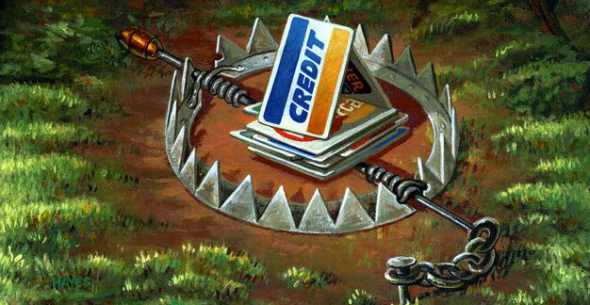
DebtHelpers.ca – Strategies for Managing Credit Card Debt – A Guide to Achieving Financial Freedom
May 6, 2024
Overcoming Personal Financial Crises with Licensed Insolvency Trustees – A Guide
May 16, 2024In the quest for financial stability, individuals confronted with mounting debt may find themselves seeking effective and sustainable debt resolution strategies. One such strategy is debt settlement, a process wherein debtors negotiate with creditors to reduce or eliminate a portion of their outstanding debt. While debt settlement can provide relief to those overwhelmed by debt, it is crucial to understand its intricacies, benefits, and risks to determine its suitability for one’s unique financial circumstances and priorities.
This comprehensive guide aims to elucidate the concept of debt settlement, its key components, and the various strategies that can be employed to achieve successful debt resolution. By examining the advantages and potential drawbacks of this approach, individuals can make informed decisions regarding its appropriateness for their financial needs and goals. Additionally, the guide will discuss the importance of seeking professional assistance and expert guidance to navigate the complexities of debt settlement effectively.
Unraveling the Intricacies of Debt Settlement: Benefits, Risks, and Strategies for Effective Debt Resolution
Debt settlement is an approach to debt resolution that involves negotiating with creditors to reduce or eliminate a portion of outstanding debt. By understanding its intricacies, benefits, and risks, individuals can assess whether debt settlement is suitable for their specific financial needs. This guide will explore the various aspects of debt settlement, including the advantages, potential drawbacks, strategies for success, and the importance of professional guidance.
Advantages of Debt Settlement
Debt settlement can offer several benefits to those struggling with financial obligations, including:
1. Reduced Debt Amount: Through successful negotiations, portions of the outstanding debt can be eliminated, allowing individuals to pay significantly less than initially owed.
2. One-time Payment: Debt settlement negotiations often result in a one-time lump-sum payment, which can simplify the repayment process compared to ongoing monthly payments.
3. Avoid Bankruptcy: Settling debts can help individuals avoid filing for bankruptcy, which can have long-lasting consequences on credit scores and future financial opportunities.
4. Psychological Relief: Reducing debt burden through successful negotiations can provide significant relief and positively impact mental and emotional well-being.
Potential Risks of Debt Settlement
Despite its potential benefits, debt settlement carries certain risks that should be carefully considered:
1. Credit Score Impact: Settling debts may result in a negative impact on credit scores, as creditors report the settled amount as “settled” rather than “paid in full.”
2. Tax Consequences: Forgiven debt amounts may be taxable as income, resulting in potential tax liabilities.
3. Incomplete Debt Resolution: Creditors are not obligated to accept settlement offers, and unsuccessful negotiations may prolong the debt resolution process.
4. Additional Fees: Engaging a debt settlement company may result in fees, which should be weighed against the potential savings achieved through negotiations.
Debt Settlement Strategies
Understanding and employing effective debt settlement strategies can increase the likelihood of successful negotiations:
1. Self-Negotiation: While professional assistance can be beneficial, it is possible to negotiate with creditors directly. Self-negotiation involves researching potential settlement amounts, crafting persuasive arguments, and presenting offers assertively.
2. Debt Settlement Companies: Engaging a reputable debt settlement company can provide expert negotiation assistance, potentially resulting in more favourable outcomes. When selecting a debt settlement company, it is important to consider fees, success rates, and industry accreditations.
3. Payment Plan Negotiations: If lump-sum settlement payments are not feasible, negotiating a modified payment plan with creditors can still result in reduced interest rates and fees.
4. Utilize Timing: Creditors may be more willing to negotiate if there is a realistic threat of bankruptcy or if the statute of limitations on debt collection is nearing expiration.
The Importance of Professional Assistance
Effective negotiation is crucial for successful debt settlement, and seeking professional assistance can provide valuable benefits:
1. Expertise and Negotiation Skills: Professionals with experience in debt settlement possess invaluable knowledge and negotiation skills, contributing to more favourable outcomes.
2. Creditor Communications: Establishing and maintaining clear and persuasive communication with creditors is critical to successful negotiations. Professionals can help facilitate these communications and ensure a consistent and assertive approach.
3. Banking Knowledge: Professionals understand the intricacies of the financial and debt collection industries, which can be leveraged to strengthen negotiation positions.
4. Emotional Support: Navigating the stress and challenges of debt resolution can be taxing. Professional assistance offers emotional support and guidance throughout the process.
Conclusion
Debt settlement is a powerful tool for resolving debt and achieving financial stability. By understanding its benefits and risks, individuals can assess its suitability for their unique financial situations. Employing effective strategies and seeking professional guidance can increase the chances of successful negotiations, ultimately leading to more favourable outcomes and financial well-being.
Engage the knowledgeable professionals at Debt Helpers to explore the advantages and risks of debt settlement and receive personalized guidance tailored to one’s specific financial needs and objectives. Contact our debt consultants today!

